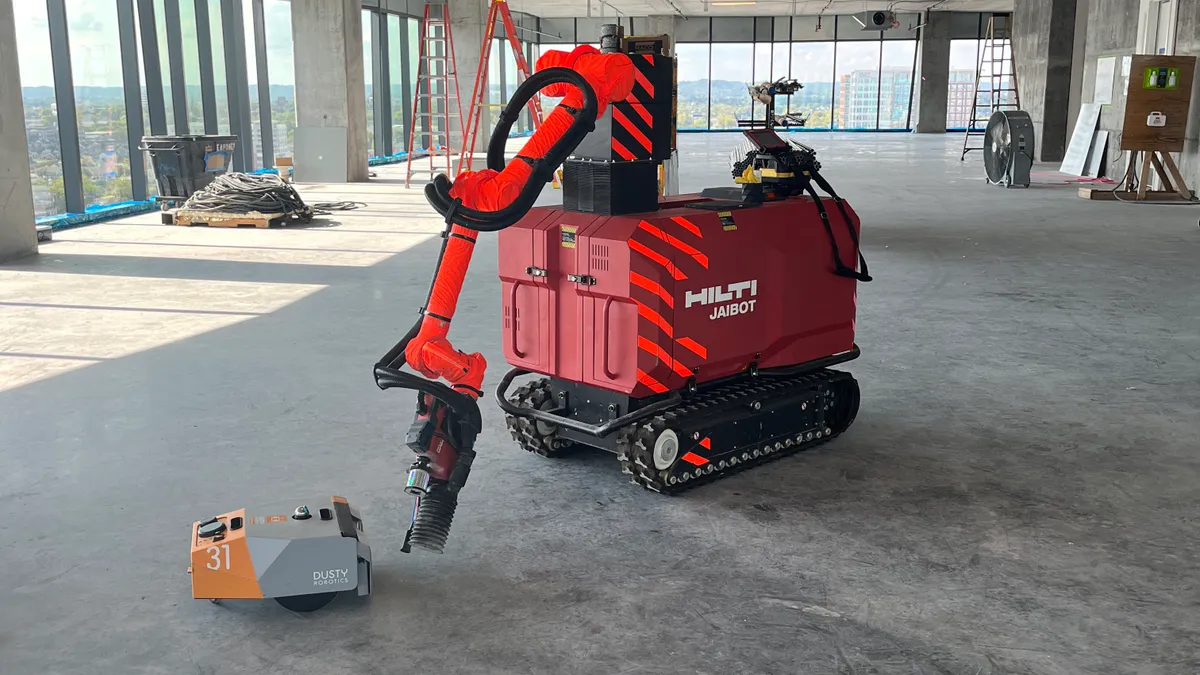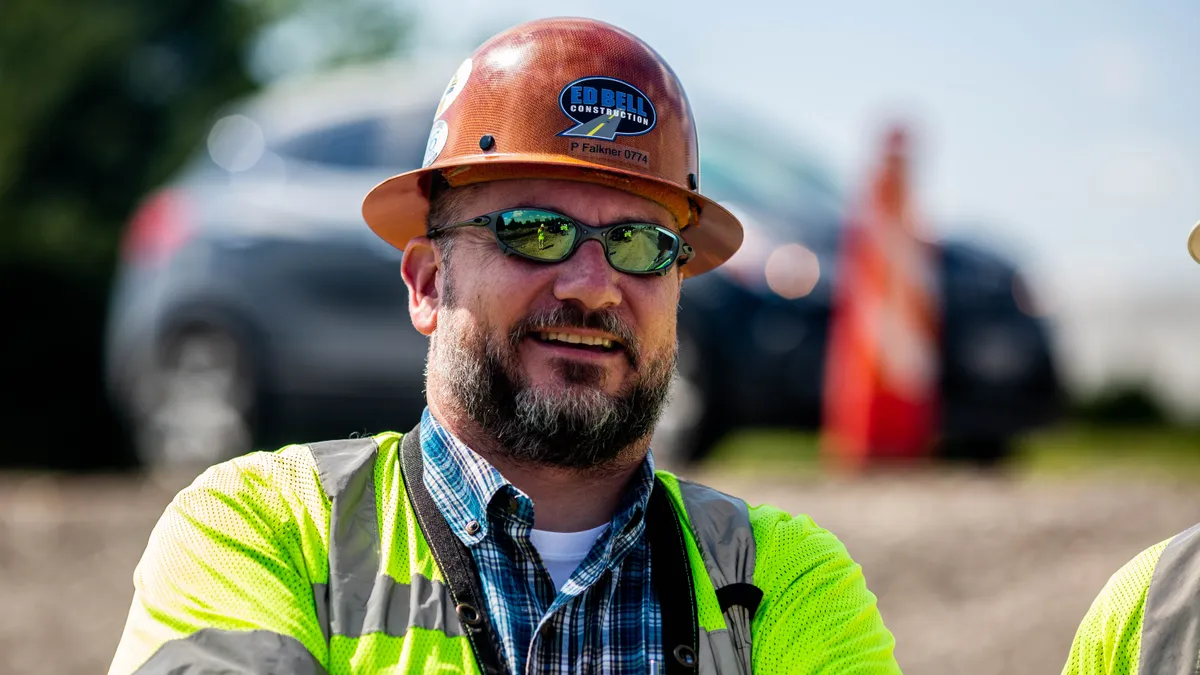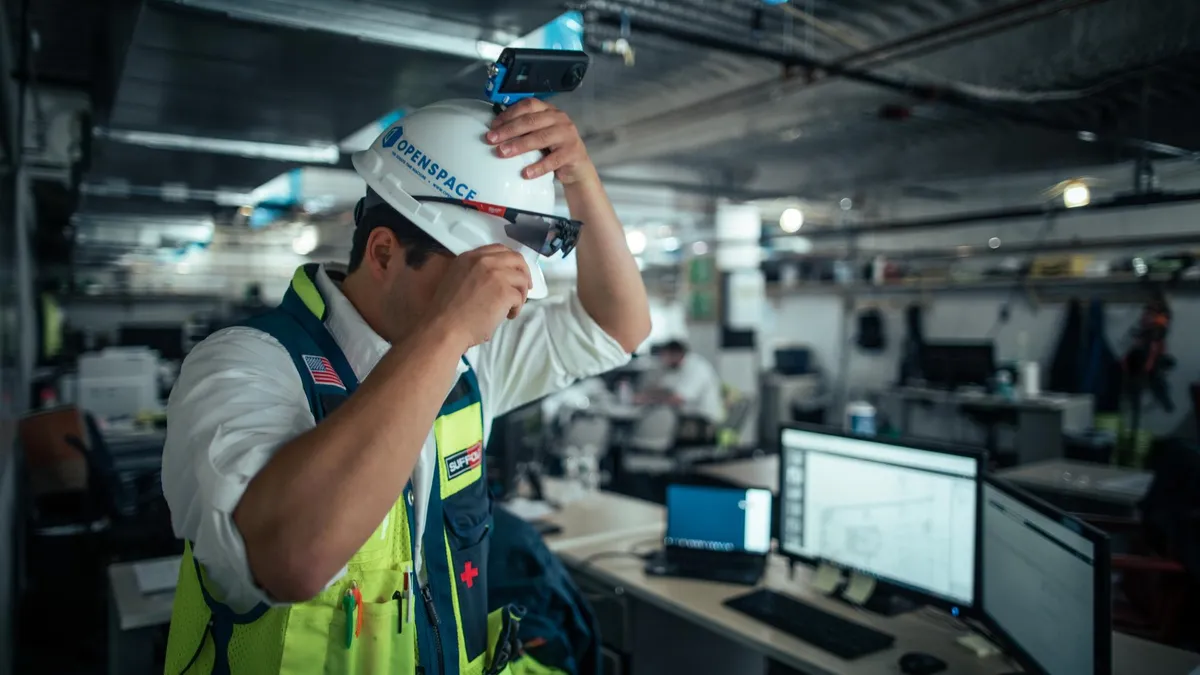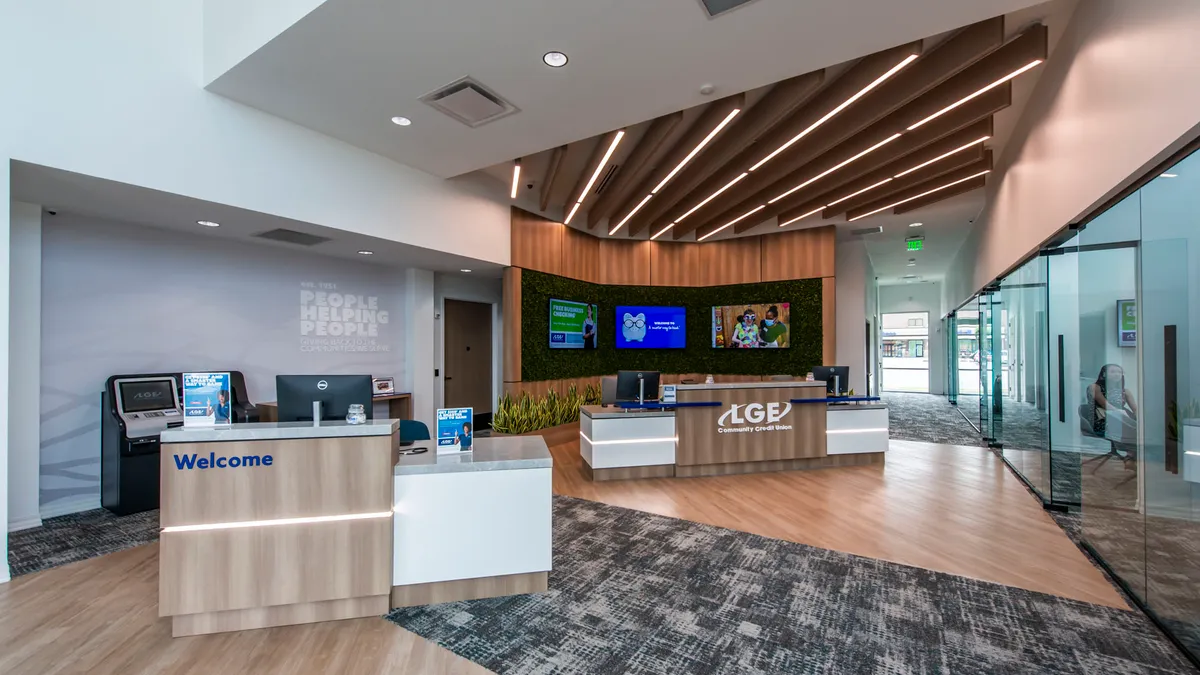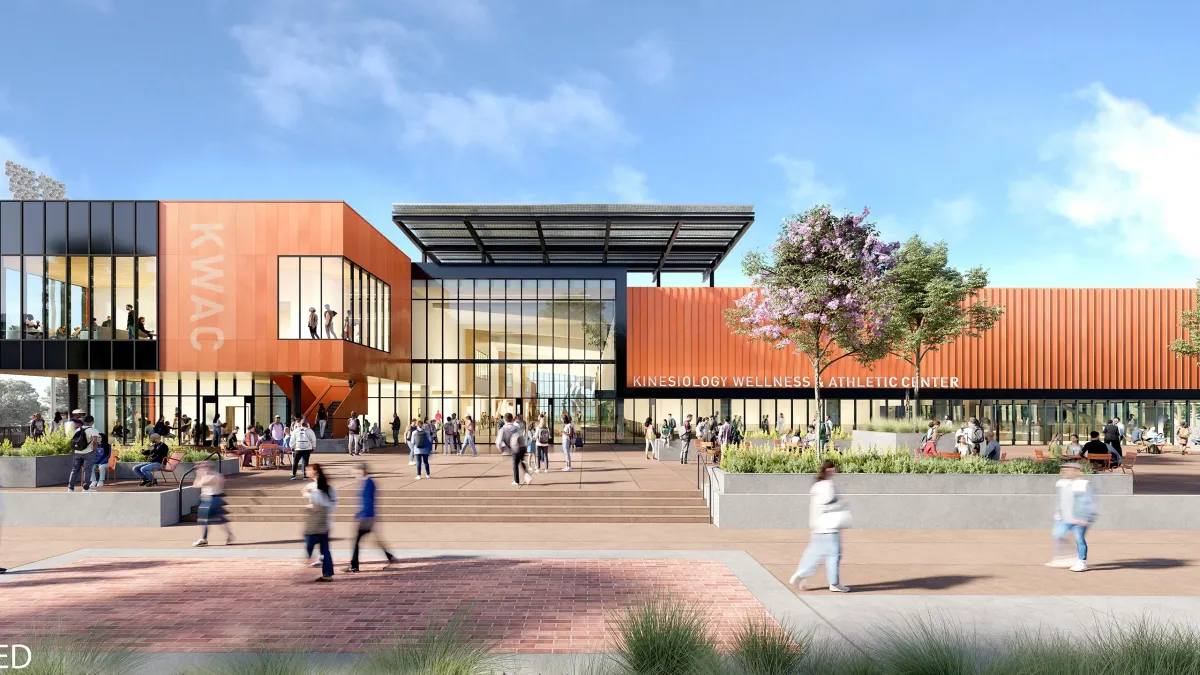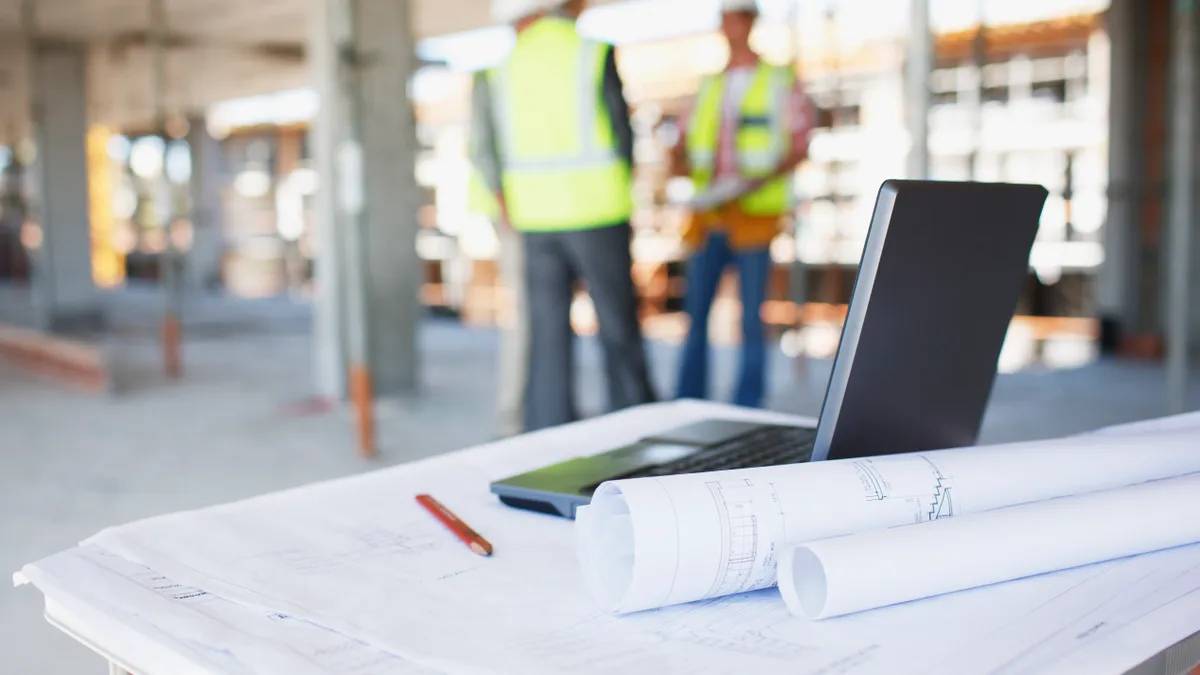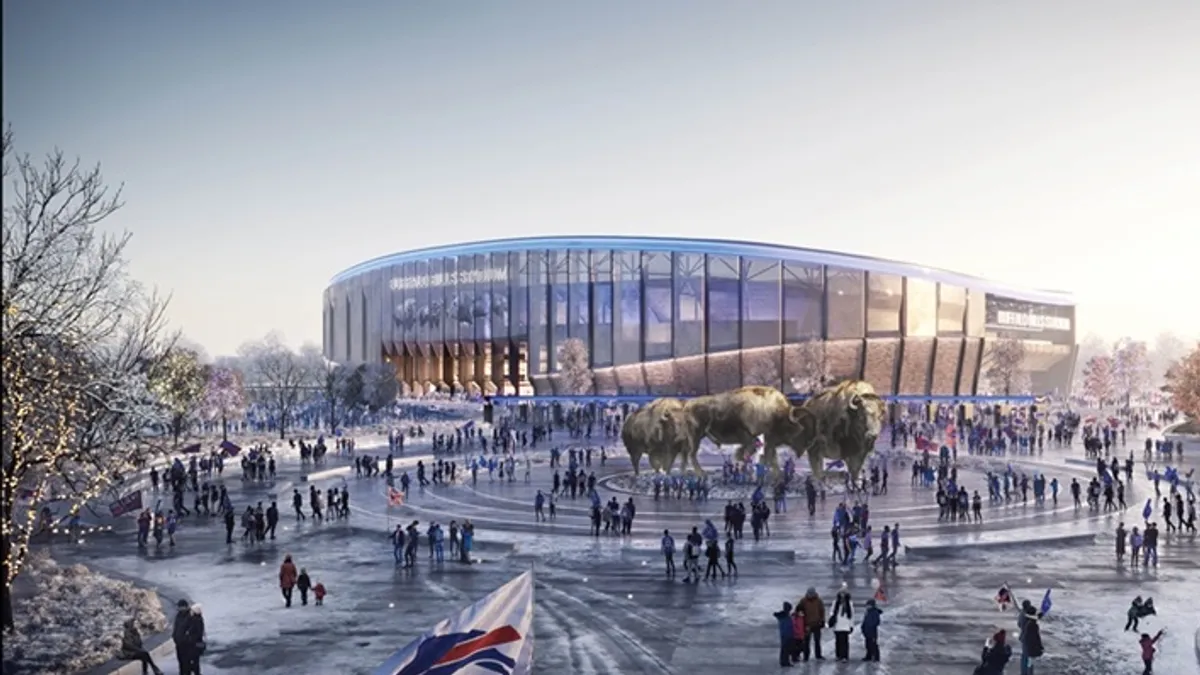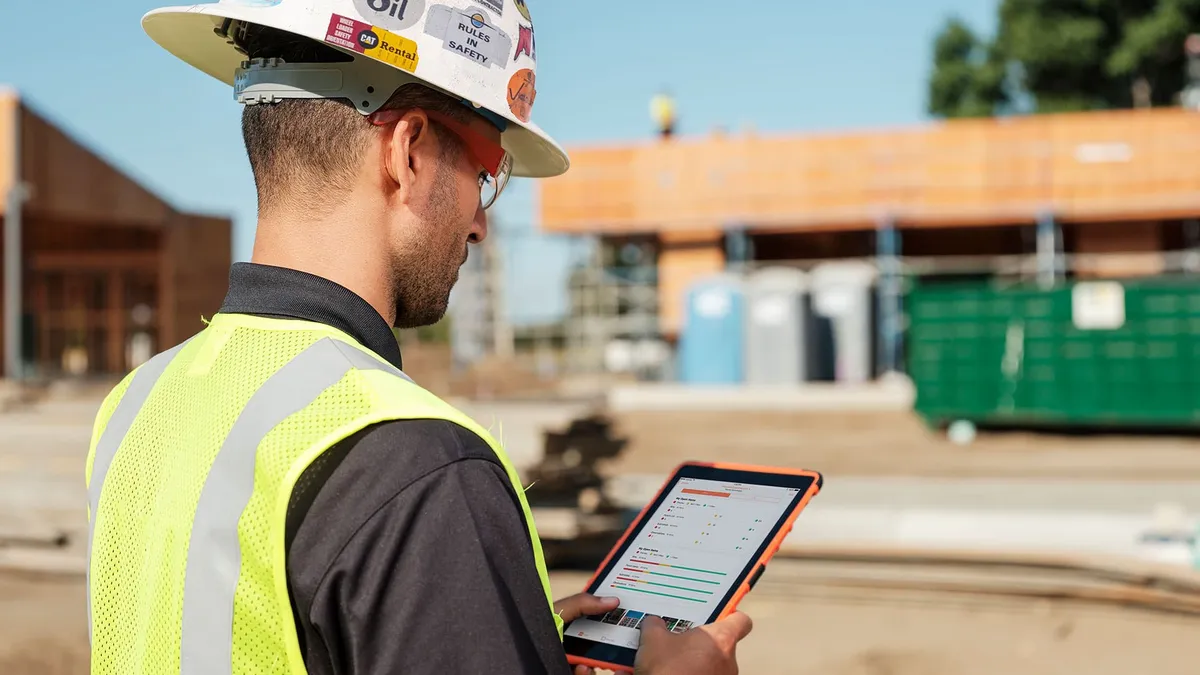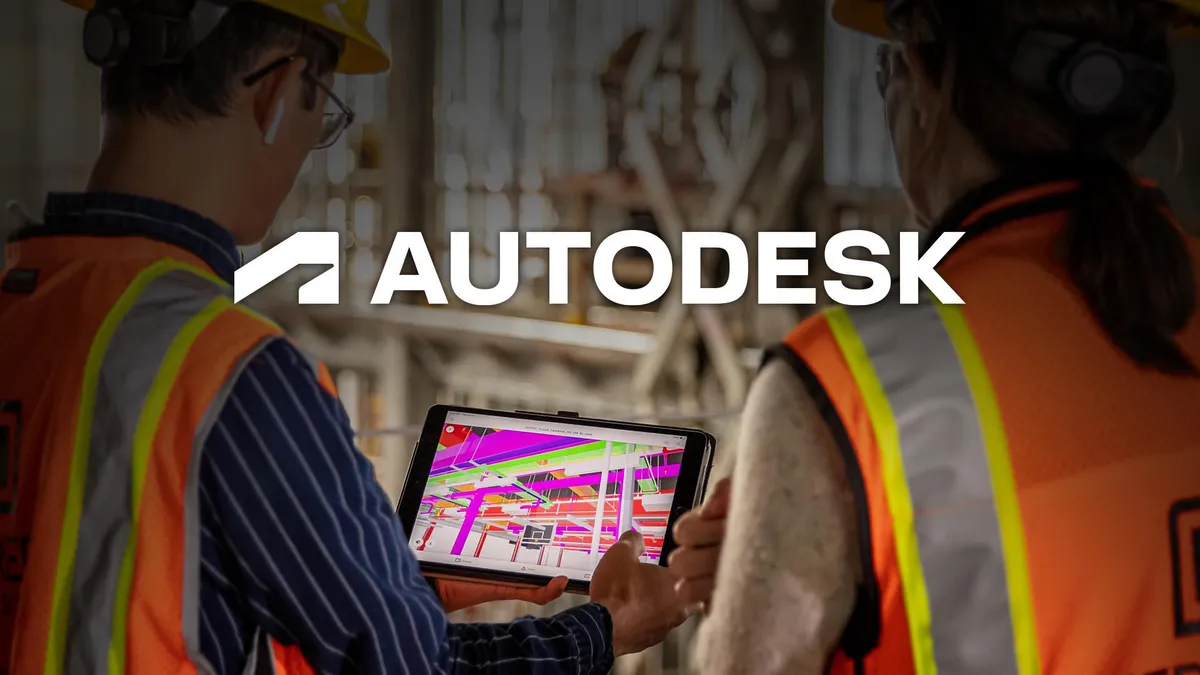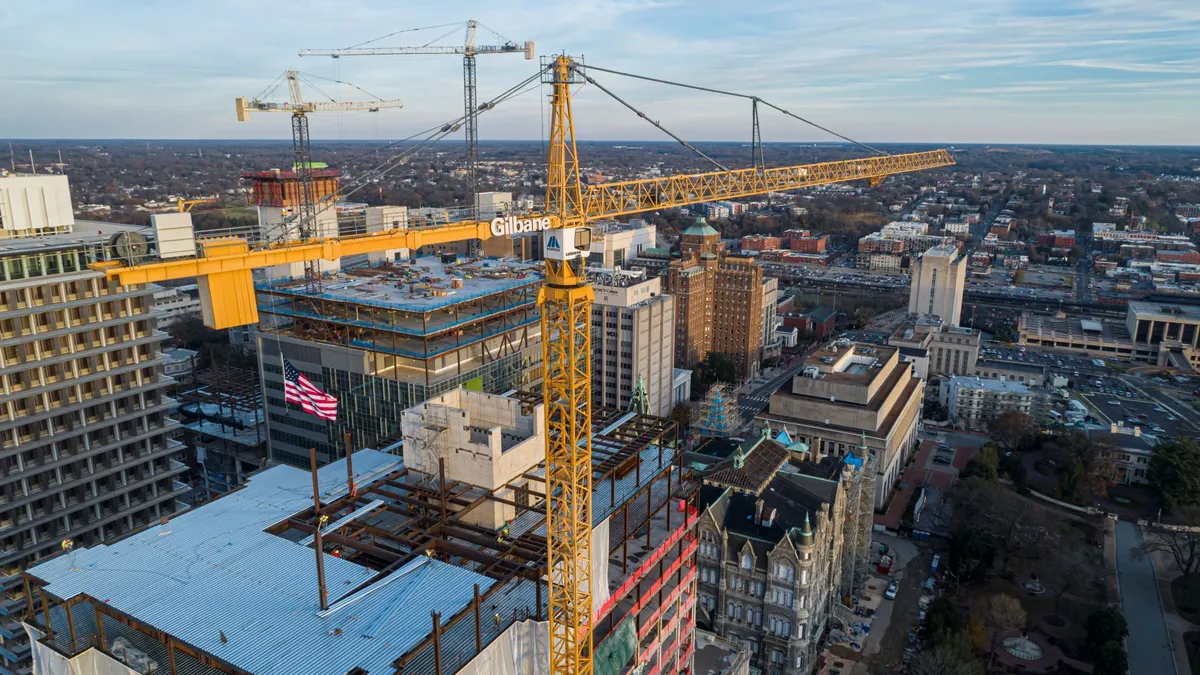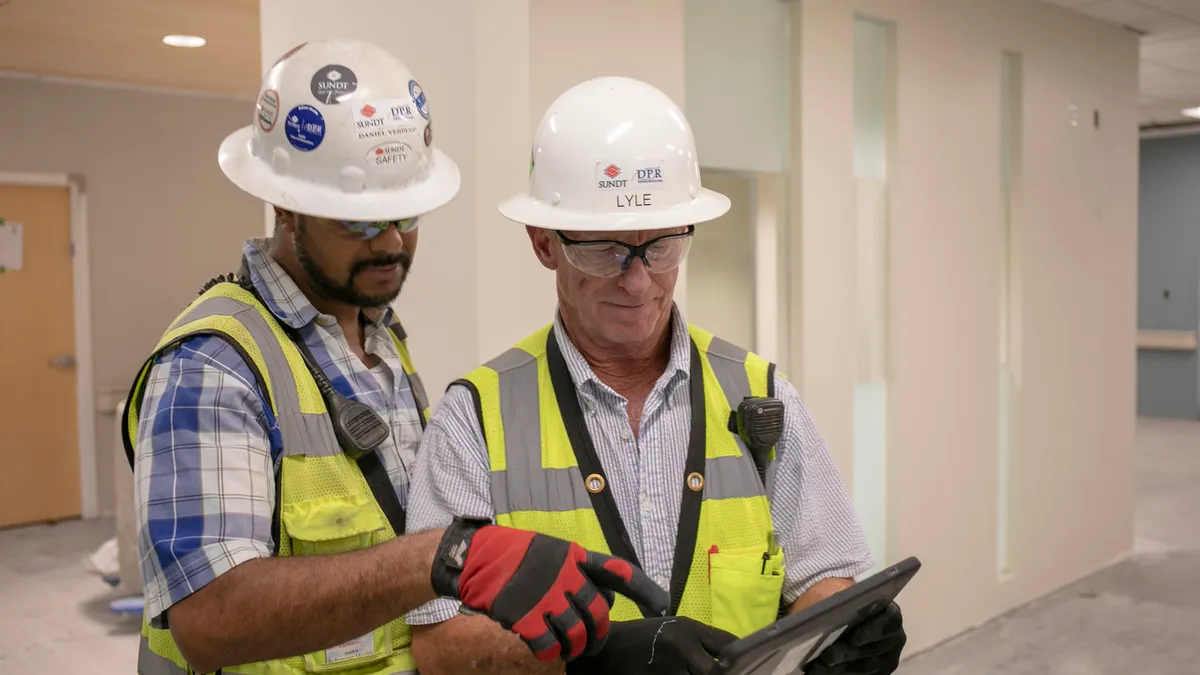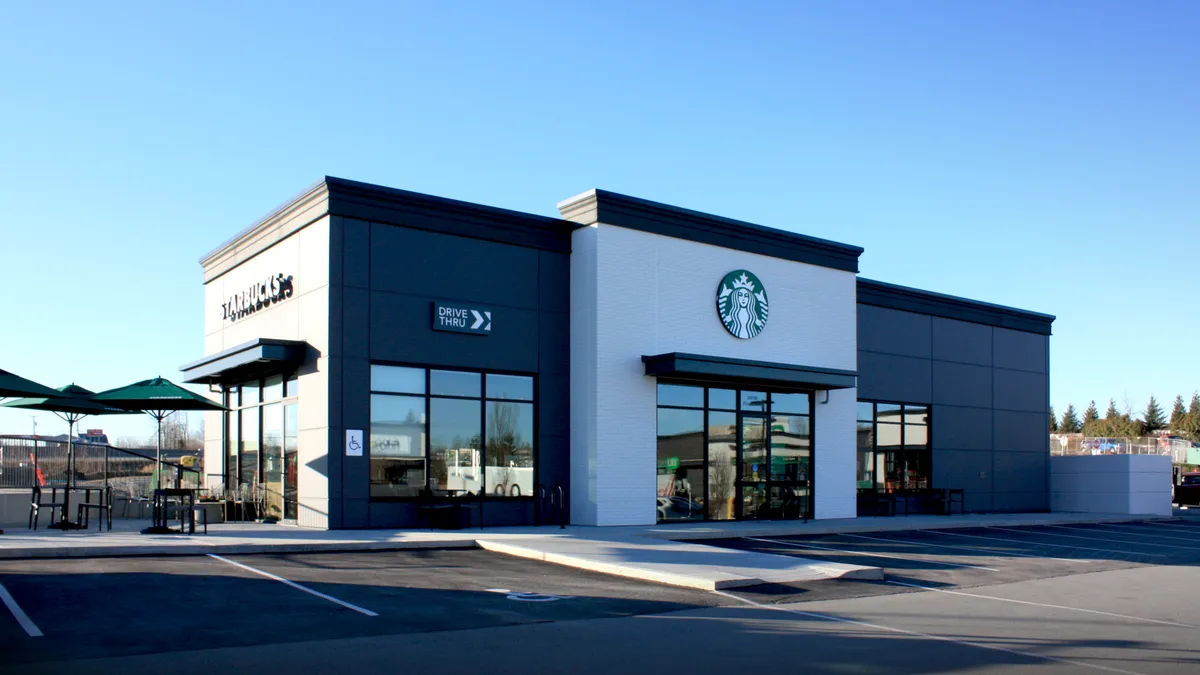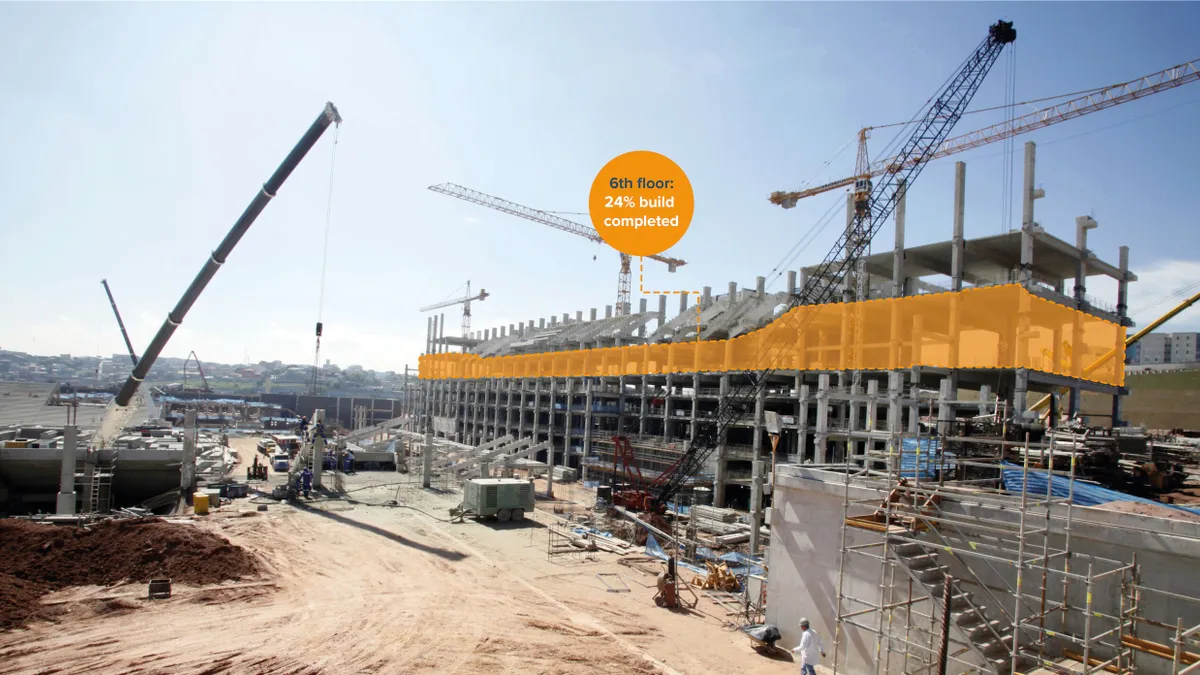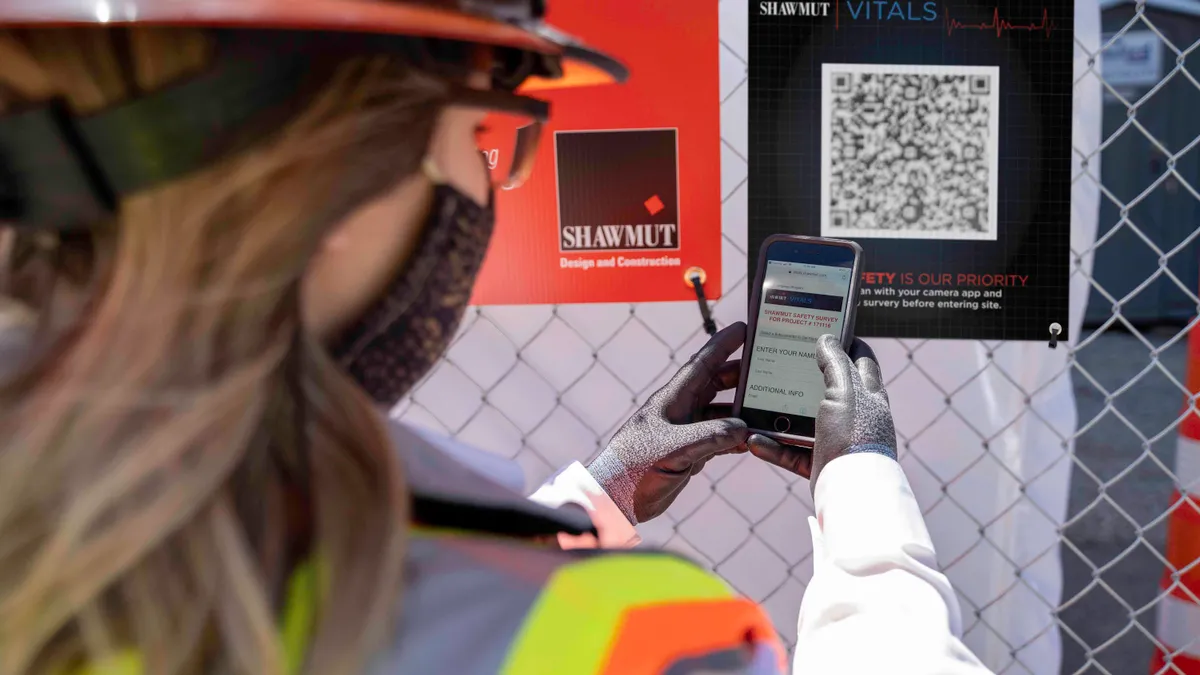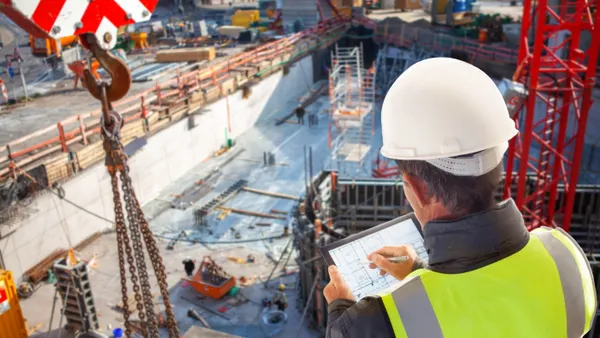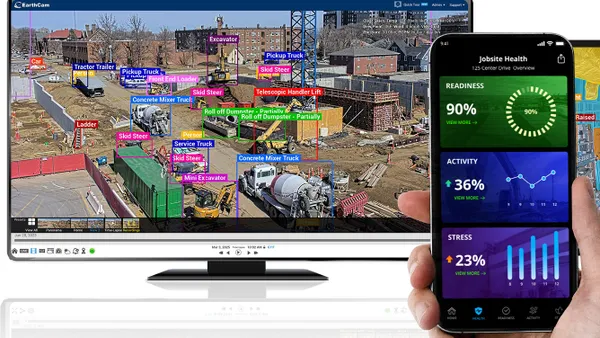Though the pandemic compelled Procore to delay its plans, the company's initial public offering went through in May, and the construction tech provider has successfully gone public.
Like other companies, the pandemic forced Procore to shelve expectations, and focus on what little certainty did exist in the industry.
Construction Dive spoke with Founder and CEO Tooey Courtemanche (pictured above, at the podium) to learn more about the IPO process and Procore's unique perspective on the construction industry and its challenges.
CONSTRUCTION DIVE: Procore announced an IPO, then had to delay it due to the pandemic. What was that process like? What has changed since Procore went public?
TOOEY COURTEMANCHE: We had planned to go March 2020. Bags were literally packed. I had my suitcase at the top of the stairs. I'm like, "We're going to New York, we're doing the road show." And I got the phone call that said, "Hey, people are really not getting on planes as of tomorrow." So, we pumped the brakes and focused all of our energy for the next year on our employees and our customers and our partners to make sure everyone was safe.
Like everyone else, Q2 of 2020 was definitely a challenging quarter just because there was so much uncertainty. But then you fast forward to 2021, the industry is definitely on the road to recovery. When we look at the usage of Procore and the construction volumes and everything else, Q2 2020 was the worst, and then each quarter thereafter we saw the industry was coming back. So we figured it was time—now that we have some predictability in the industry—to adapt, to go public again.
I think we had the first IPO in the New York stock exchange where we were coming out of the lockdown. So we had lots of employees, lots of customers, lots of partners on the New York stock exchange floor. It was a massive celebration, not of Procore, but of the industry. For us to be able to stand on the New York stock exchange and celebrate an industry that builds the world around us was really rewarding.
Now that Procore is public, has that changed anything day-to-day, or long-term, for the company?
Surprisingly, no. There are some regulatory things you have to do that are different. Procore has always operated as a bigger company than we were. So, no, not really. Of course now we have our quarterly earnings calls.
The thing that really has changed is that now that we have the resources at hand to be able to accelerate our investment growth and to be able to provide more solutions.
Then having the brand of a public company globally does help. To be able to go into new markets and meet new customers in any corner of the globe, just being listed on the New York stock exchange really is big. It helps eliminate the early questions that clients might have and helps them focus on the solution you provide.
How much more important has tech become during the last year and a half?
It's become obvious that connecting everyone is fundamental to how construction has to get done, especially during a pandemic. If you think about pre-construction in general, there's a lot of folks that are involved for a temporary period of time. You have the estimating folks, you have the BIM coordination teams, you have all of the people that are coming into managing the bidding phase, and all of that. It used to happen in a jobsite trailer. When COVID hit, those folks were enabled to be remote, right?
Well, you can't manage the complexity of construction with people being remote without using some form of technology that allows people to work off the same set of information virtually. So, it has definitely been an accelerant to the adoption of technology in construction.
We often hear about how construction is lagging in tech adoption. To some extent that has seemed to change during the pandemic, out of necessity. Are these changes permanent? Why weren't these practices in place beforehand?
This is where I get kind of animated, but I'm going to tell you that contractors are not laggards. I've been doing this for 20 plus years now. I'll tell you what really happened: prior to, I'd say 2012, the internet really wasn't at the jobsite. The iPhone came out in 2007, and I remember when it came out, it was like space-age technology. The iPad came out in 2011. So, it wasn't until around 2012 that people started being able to bring the internet to the jobsite. So, until that point, a number of people spoke to me like, "I can't believe you're selling software to this laggard industry of construction." That is so unfair.
From 2012 on, really the only technology that was available on jobsites was antiquated client servers — really clunky, installed CD ROM junk, or solutions that people would download from the fledgling app store that would do like a punch list. They just didn't have the tech they needed to get the job done. But the problem is that people have this notion that contractors are laggards. I'll tell you what: when I walked into jobsite trailers in 2004 or 2005, they weren't on the internet, but they'd have Excel open. And these folks would be doing stuff in Excel that made all the investment bankers blush because the contractors had to manage the complexity in one way, shape or form.








